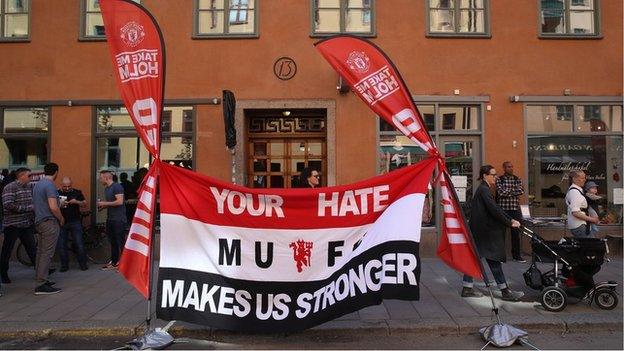Manchester attack: City finds strength in music and sport
- Published
Crowds sing Don't Look Back in Anger after minute's silence
The Manchester attack may have tested the city's resolve, but people are finding light in the darkness through its twin loves of music and sport.
If Monday's bombing was an attempt to interrupt the lifestyles of proud Mancunians then it has failed, say figures from the city's vibrant entertainment scene.
Manchester's two time-honoured traditions of gigs and sporting events are continuing, with a renewed sense of defiance.
Football rivalries have been put to one side, with fans coming together to wish Manchester United well after the Red Devils' Europa League triumph, and the Great Manchester Run - Europe's largest 10km event - will go ahead on Sunday.
Indie rock band The Charlatans will hold their long-planned musical takeover of the city's Oldham Street on Friday, just a five-minute walk away from the scene of the blast, and former Oasis singer Liam Gallagher will make his live solo debut at the Ritz venue on Tuesday, with the profits going to the fund set up to support the victims of the attack.
And rugby league's Salford Red Devils are offering fans free entry to their game at AJ Bell Stadium on Friday in return for a donation to the same fund.
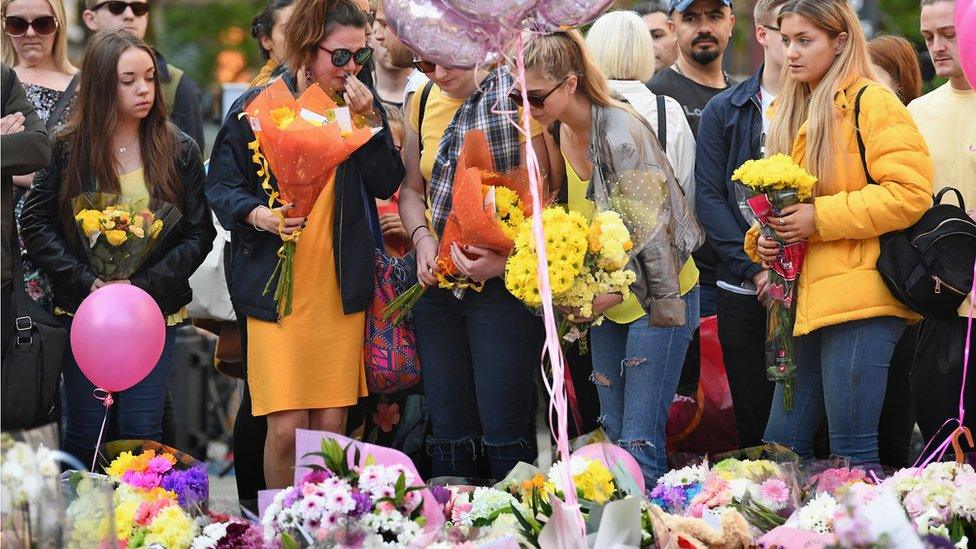
Members of the public have been laying floral tributes and messages in St Ann's Square
Several other gigs have gone ahead in the aftermath of the attack.
On Tuesday, the day after the tragedy, a Simple Minds concert went ahead in the city after the band said cancelling their show would have felt "cowardly".
The same night, former Smiths guitarist Johnny Marr made a surprise appearance with Broken Social Scene at the Albert Hall.
Dave Haslam, a writer and former DJ at the Hacienda, said music could be part of a "great healing process".
"As a DJ for 35 years I've seen dance floors in front of me packed with people from all ages, backgrounds, ethnic groups and sexualities, united under the glitter ball" he said.
"That is really what life in Manchester is like. That is who we are."
Mr Haslam, who has arranged a fundraising event, external for victims of the attack, said Manchester people "measure out their lives in musical events".
"That's true whether it's young kids going to Manchester Arena or students coming to the city to go to obscure Northern Quarter venues, or older people, who still go to gigs," he said.
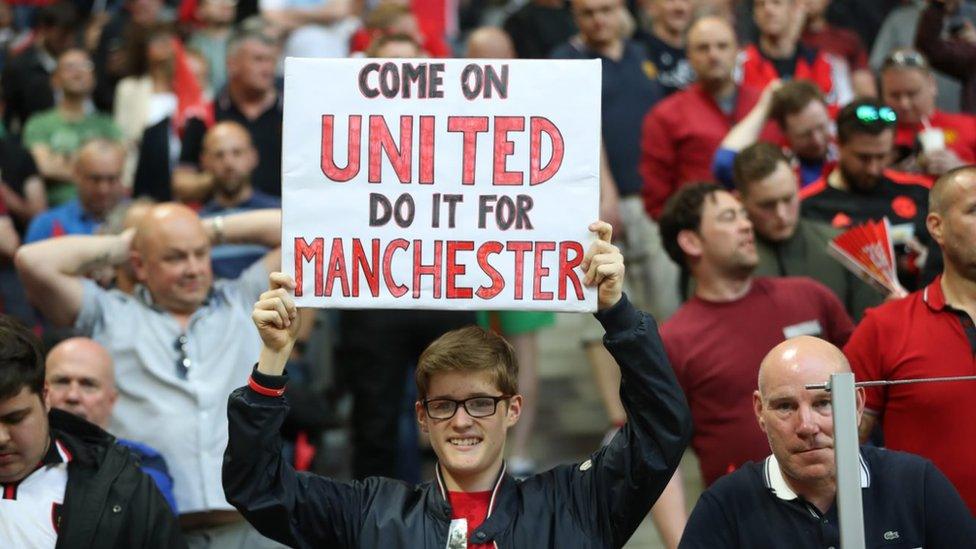
Manchester United fans put on a show of unity at the team's triumphant Europa League final on Wednesday
"Music is seen as something that brings us together."
The point was underlined in the city on Thursday, when crowds broke out into a rendition of Oasis's hit Don't Look Back in Anger after observing a minute's silence.
Manchester music historian Paul Wild said there was a grim irony in the fact that Monday's attack targeted a concert.
"It's an unpleasant thought to think that this will be in the city's history for ever more," he said.
"This city is so strong in its musical heritage. It's been very touching to see the response."
Mr Wild drew attention to similar scenes of unity after the Paris attacks of November 2015.
Co-ordinated attacks on a concert at the Bataclan theatre, restaurants, cafes and the Stade de France football stadium left 130 people dead.
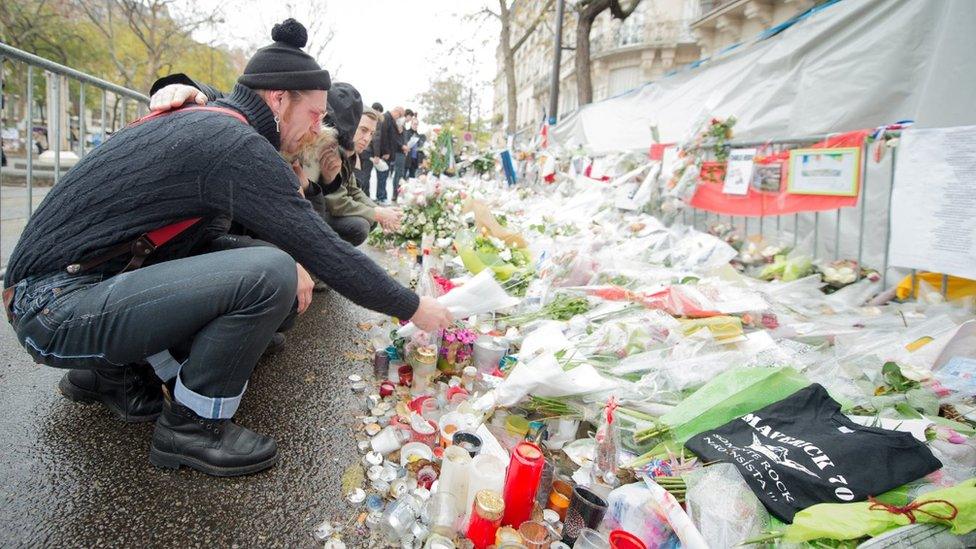
Comparisons have been made with other cities which have responded to massacres, including Paris
Heavy metal band Eagles of Death Metal later returned to the Bataclan for a performance in memory of the victims.
Mr Wild said: "I can imagine that we might see something like that in Manchester.
"I think we could see a huge musical event planned in the months ahead. Perhaps an event back at the Arena."
In sport, Manchester United dedicated the team's cup final win over Dutch side Ajax to the victims of the bombing.
The club and Manchester City later announced they had jointly pledged £1m to an emergency fund set up to support survivors and their families.
Wednesday night's match in Stockholm was described as "a release" by United fan and football writer Andy Mitten.
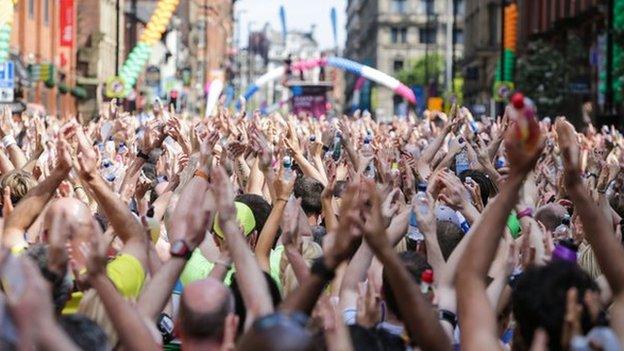
More than 300,000 people have taken part in the Great Manchester Run
Mr Mitten, who edits the fanzine United We Stand, said: "Stories were starting to seep through at the match about friends of friends affected by the attack. Lots of people know people who died or had been seriously injured.
"It almost allowed people to forget about it for a while and relegate it from their minds for a few hours.
"But as Jose Mourinho said, you would swap everything for just one life."
David Hart, one of the organisers behind the Great Manchester Run, said there had been an "overwhelming desire" for the event to go ahead.
"The final decision rested with Greater Manchester Police and the council, but now it's our job to deliver," he said.
"The clamour for the run to happen was just absolutely phenomenal. I've never seen anything like it."
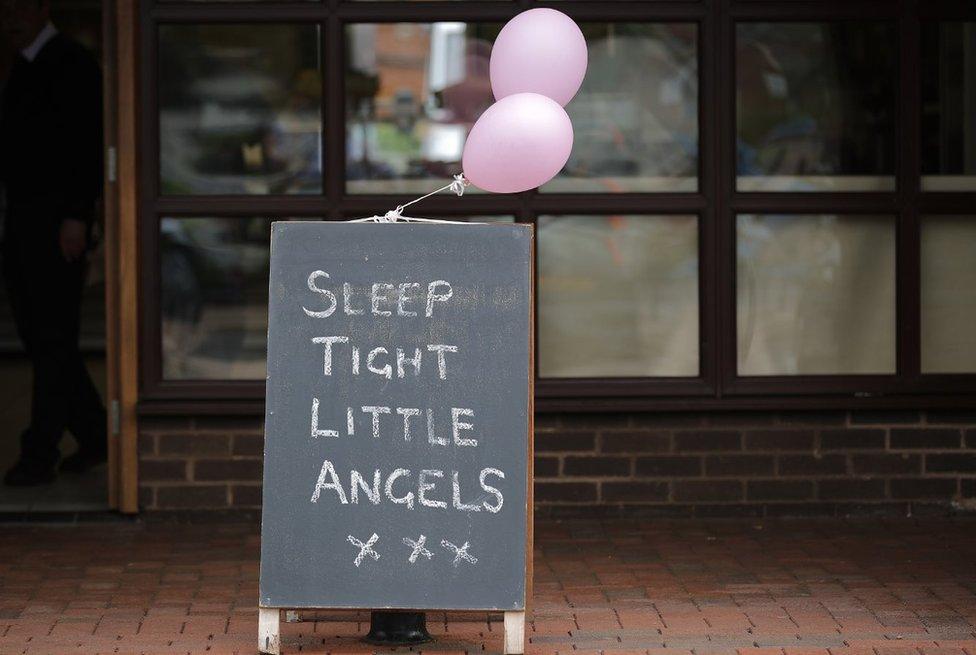
Tributes to the victims of Monday's bombing can be seen across the city
Mr Hart said there would be three separate minutes of silence held at the various start points for the run.
Psychologist Dr Tom Fawcett said it was human nature or, as he phrases it, "human spirit" for people to unite after traumatic events.
The specialist in mental resilience said: "You see it throughout history. During the Second World War, after the London bombings and the attacks on the Twin Towers.
"In New York particularly, it was incredible how that city was transformed.
"Individually, it's very difficult for people to deal with trauma. We don't have the coping skills. But collective strength is stronger. You see it in football, with siege mentality.
"This time it's a whole city that's been ripped apart, and a whole country that's been emotionally scarred.
"Ultimately this atrocity will make Manchester a stronger city. But it's a terrible price to pay."
- Published25 May 2017
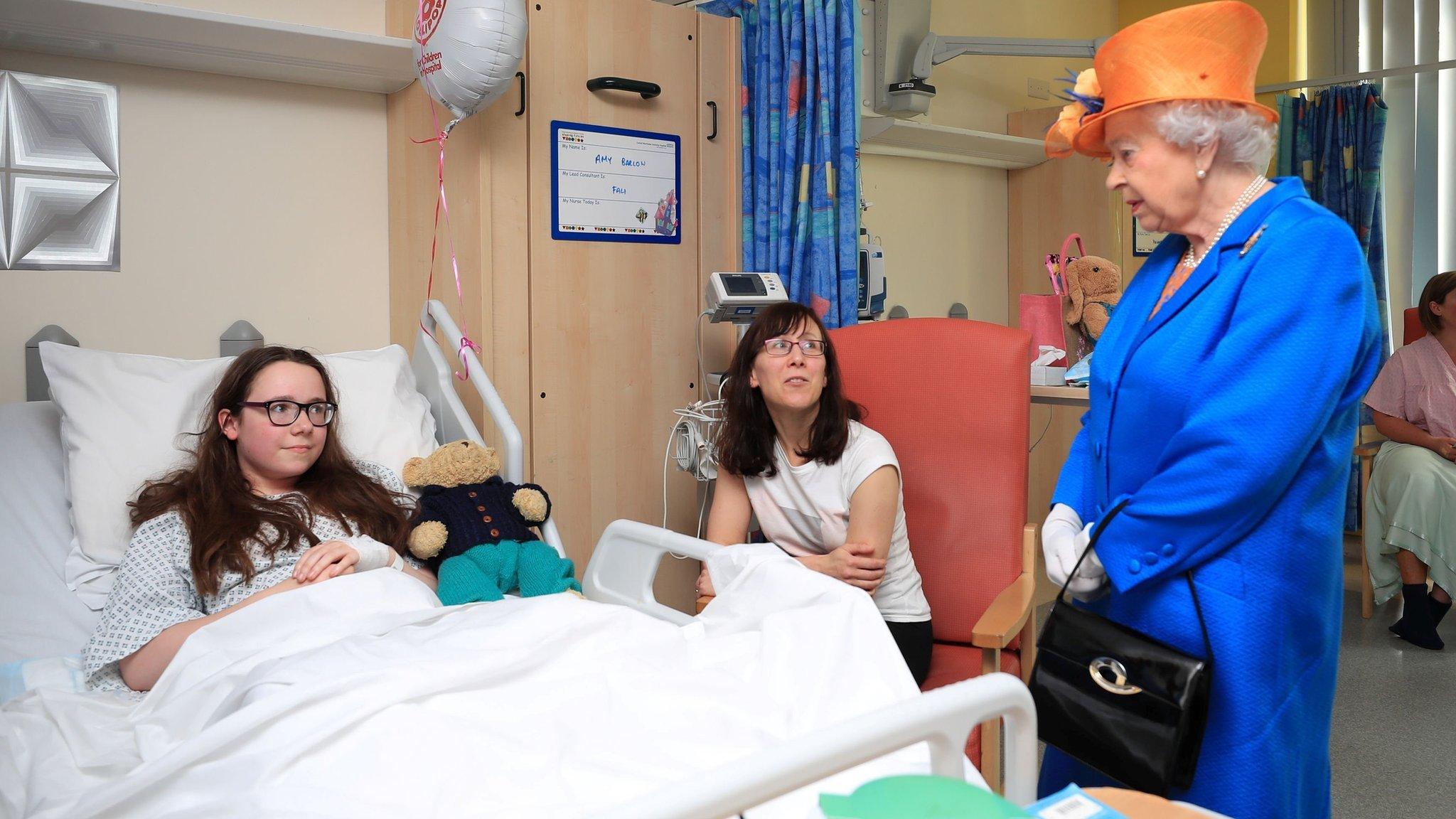
- Published25 May 2017

- Published24 May 2017
